How to deal with dwindling tax revenues even as the Georgia’s economy is booming likely will be the top issue lawmakers face when the General Assembly convenes in January, Hall County legislators said Thursday.
One way to address the drop in revenue is to add sales tax to all internet purchases, said Sen. Butch Miller, R-Gainesville, the senate pro tem.
“We’re missing between $150 and $200 million in sales tax on items that are being delivered to your front door, to my front door, by Amazon” and others, Miller told a sold-out crowd at the Greater Hall Chamber of Commerce’s annual Eggs and Issues breakfast at Lanier Technical College.
Miller said the state’s economy is “red hot,” but he acknowledged that the decline in state revenue is something legislators needs to address this session. Besides the sales tax issue, Miller said, the ongoing effects of Hurricane Michael in Southwest Georgia, particularly to agriculture, are hurting the state.
“Michael was absolutely devasting to that part of our state,” Miller said. “It will hurt us for many years to come.”
Earlier this year, Gov. Brian Kemp called on state agencies to look for budget items that could be cut. He asked for 4 percent cuts this year and 6 percent cuts in next year’s budget. But some programs – such as K-12 schools, universities and Medicaid, the health care program for the poor and disabled — are exempt.
Those exempt items represent more than 80 percent of the budget, said Rep. Lee Hawkins, R-Gainesville.
“That leaves about 17 percent of the budget that’s discretionary, and that includes things like public safely and natural resources,” Hawkins said.
In 2008, during the Great Recession, much of the fat in the state’s budget was cut, Hawkins said.
“There’s not a lot of fat on the bone,” Hawkins said. “It’s a lean and mean budget.”
Georgia’s Constitution requires that lawmakers pass a budget each year that is balanced.
The Eggs & Issues breakfast is an annual event that acts as a preview of the legislative session. A sold-out crowd of more than 500 people were able to submit questions for the legislators to answer.
During the question-and-answer session, the legislators showed little interest in expanding gambling in Georgia, especially if it includes that addition of sports betting. But they seemed to be keeping an open mind.
“I’m adamantly exposed to the expansion of gambling,” said Sen. John Wilkinson, R-Toccoa, whose district includes a portion of Hall County. “But if someone can show me how it might improve the quality of lives for Georgians, I’m more than willing to listen.”
Rep. Matt Dubnik, R-Gainesville, said lawmakers also need to consider more than whether to expand gambling.
“We have to consider where will the money go,” Dubnik said. “There are lots of hands that want to go in that pot. It’s a very serious consideration. It’s not just yes or no. It’s what do we want to do with that money.”
Currently, the only legal gambling in the state is the Georgia Lottery, and proceeds from it go to educational projects.
Hawkins said the General Assembly will need to deal with “surprise billing” in health care. Surprise billing refers to unanticipated bills that arrive after patients sought services at an in-network medical facility such as a hospital or surgery center. However, during their treatment, they unknowingly received services from an out-of-network provider.
“Health care has replaced the mortgage as the most expensive part of a household,” Hawkins, who is a dentist, said. “We need a system that provides necessary information to the patient.
Rep. Emory Dunahoo, R-Gillsville, agreed, saying legislators needs to work toward a solution that offers transparency to patients.
“It should be a lot simpler than it is,” he said.
Expanding broadband internet into rural parts of the state is essential to education and economic development, Miller said. He cited a Senate bill that allows electric membership cooperatives to provide broadband service in their area as a significant development.
“If we can bring rural broadband, we will catapult ourselves beyond our neighboring states,” Miller said.
Rep. Timothy Barr, R-Lawrenceville, who district includes much of South Hall County, said as many as three bills dealing with vaping are expected in the General Assembly this year.
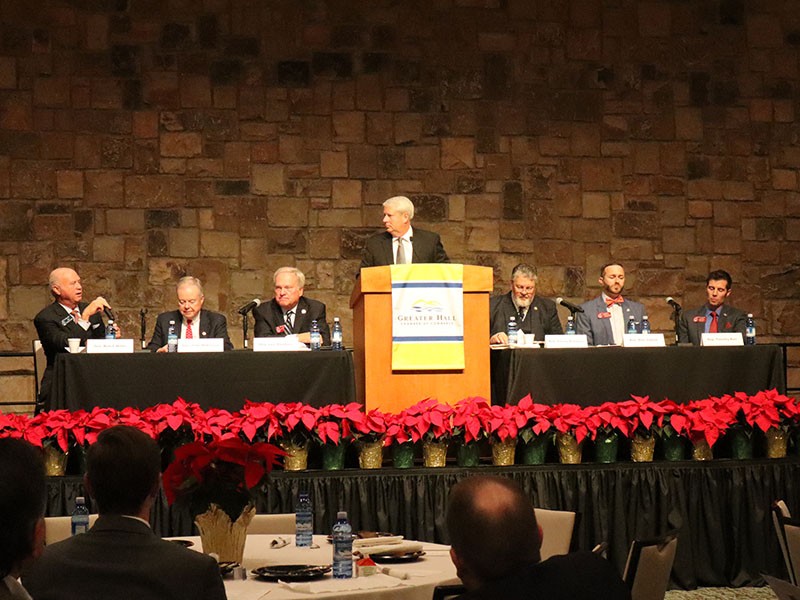
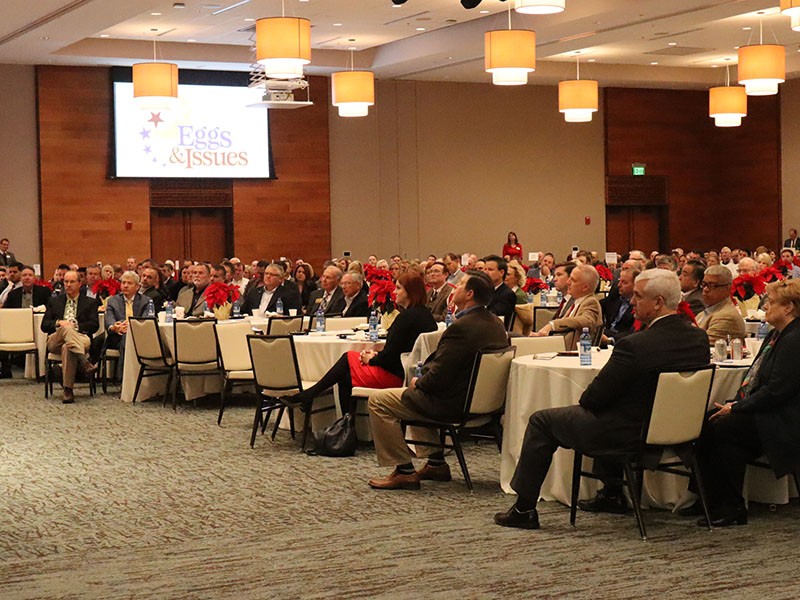
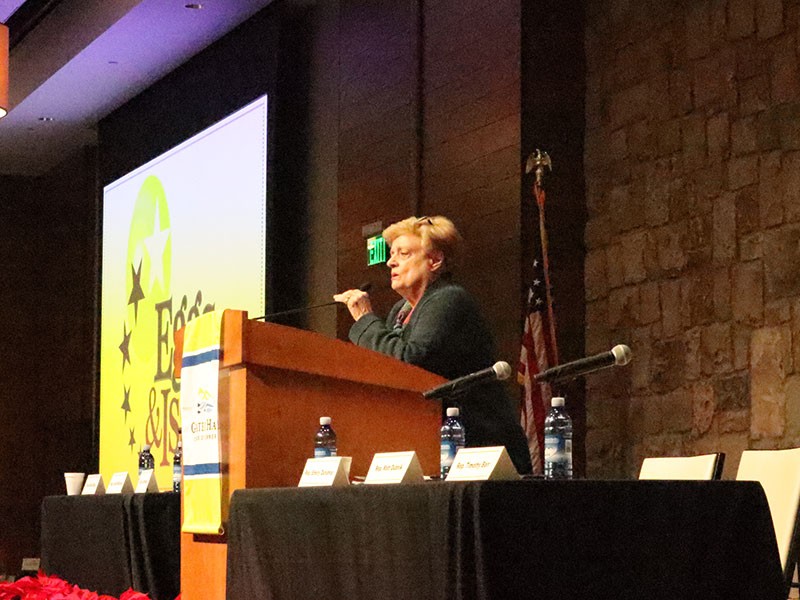
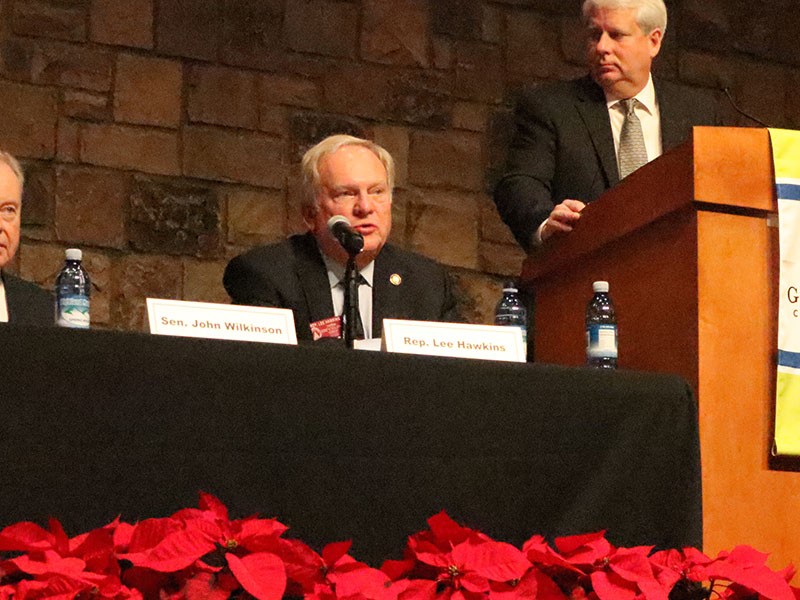
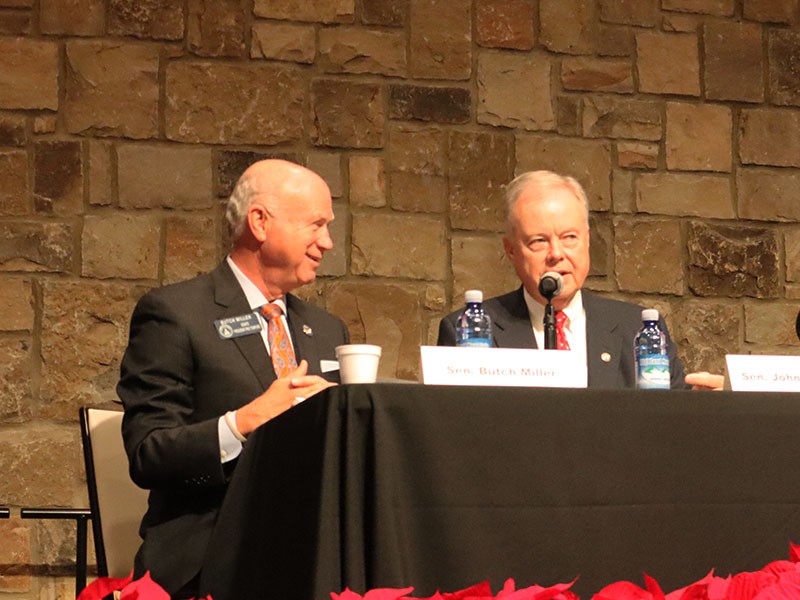
http://accesswdun.com/article/2019/12/859212/eggs-and-issues
